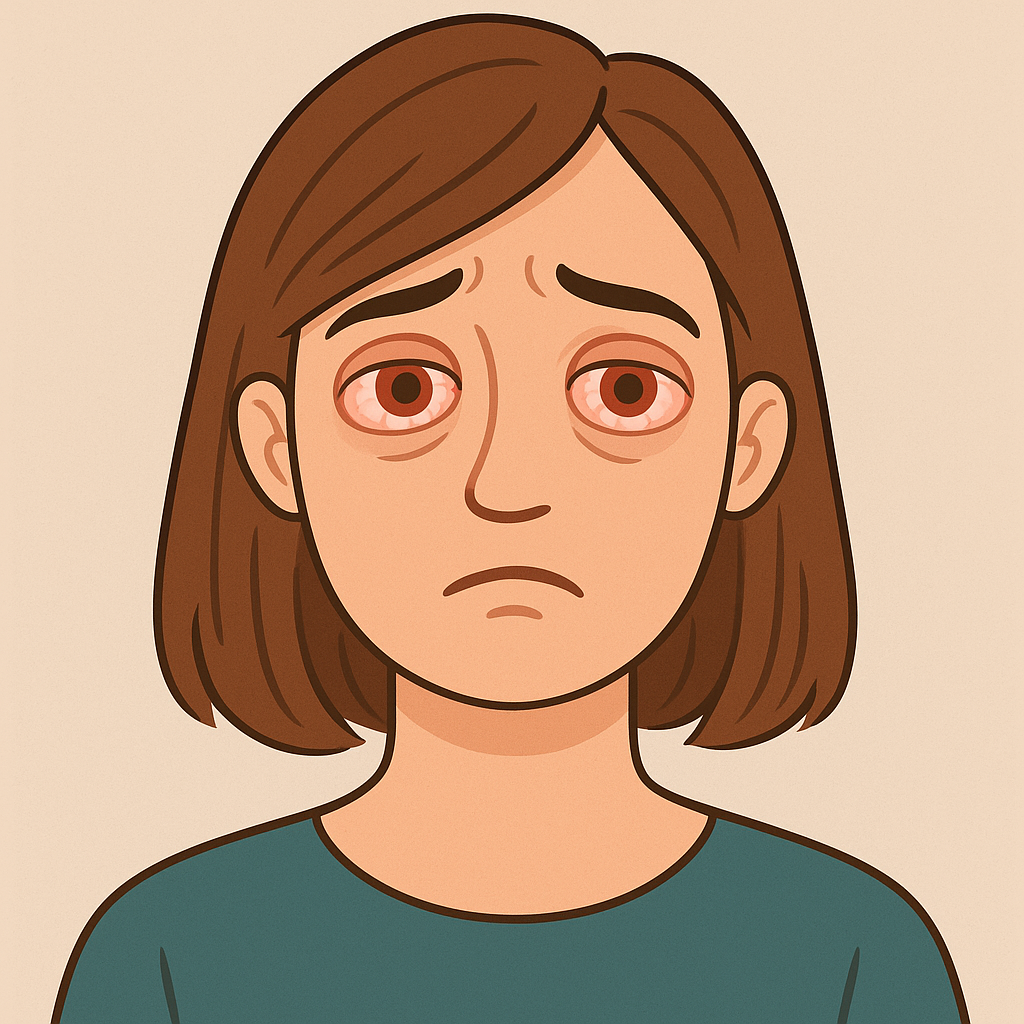Can Thyroid Eye Disease (Endocrine Orbitopathy) Be Completely Cured?


have already shared their stories
Thyroid Eye Disease (TED) is an autoimmune condition that affects the eyes, often occurring in people with Graves' disease. It can cause inflammation, bulging eyes (proptosis), double vision, and, in severe cases, vision issues. If you’re dealing with TED, you may be wondering: Can it go away completely?
The truth is, TED is different for everyone. Some people see their symptoms improve over time, especially after the active inflammatory phase settles down【1】. However, for others, TED may leave lasting effects, and not everyone experiences full recovery【1,5】.
What Affects TED’s Outcome?
Several factors determine whether TED improves or sticks around:
- Severity of TED: Mild cases may improve naturally, but moderate to severe cases usually need medical treatment【1,5】.
- Smoking: Studies show that smoking makes TED worse and lowers the chances of improvement【3,4】.
- Thyroid Hormone Levels: Keeping your thyroid levels stable with proper treatment can help prevent TED from worsening【3,6】.
- Early Treatment: Addressing TED early can reduce complications and improve long-term outcomes【3,4,6】.
What Are the Treatment Options?
Even if TED doesn't fully go away, several treatments can help you manage symptoms:
- Lubricating Eye Drops: To relieve dryness and irritation.
- Corticosteroids: To reduce inflammation in moderate to severe cases.
- Orbital Radiotherapy: In some cases, radiation therapy can help slow disease progression.
- Surgery: Options like orbital decompression, eyelid surgery, or strabismus surgery can help in severe cases.
Bottom Line
While TED doesn’t always go away completely, many patients find relief with the right treatments and lifestyle changes. If you have TED, working closely with your doctor can help you manage symptoms and improve your quality of life.
Always consult your doctor before making decisive treatment decisions. The information here and on our app is for awareness and education, not medical advice.

have already shared their stories
Sources
- Ärzteblatt - Endocrine Orbitopathy
Kahaly, G. J. (2009). Management of Graves’ orbitopathy. Deutsches Ärzteblatt International, 106(29-30), 471–482. Retrieved from Ärzteblatt - British Thyroid Foundation - Thyroid Eye Disease Leaflet
British Thyroid Foundation. (n.d.). Thyroid Eye Disease (TED) Leaflet. Retrieved from British Thyroid Foundation - PubMed Central - Thyroid Eye Disease
Smith, T. J., & Hegedüs, L. (2022). Thyroid-associated ophthalmopathy. The New England Journal of Medicine, 387(7), 631-644. Retrieved from PubMed Central - Acta Medica Indonesia - TED
Setyawati, A., & Wibisana, I. (2021). Management of Thyroid Eye Disease: An Indonesian Perspective. Acta Medica Indonesia, 53(2), 185-194. Retrieved from Acta Medica Indonesia - Cleveland Clinic - Thyroid Eye Disease
Cleveland Clinic. (n.d.). Thyroid Eye Disease (TED): Symptoms, Causes, and Treatments. Retrieved from Cleveland Clinic







